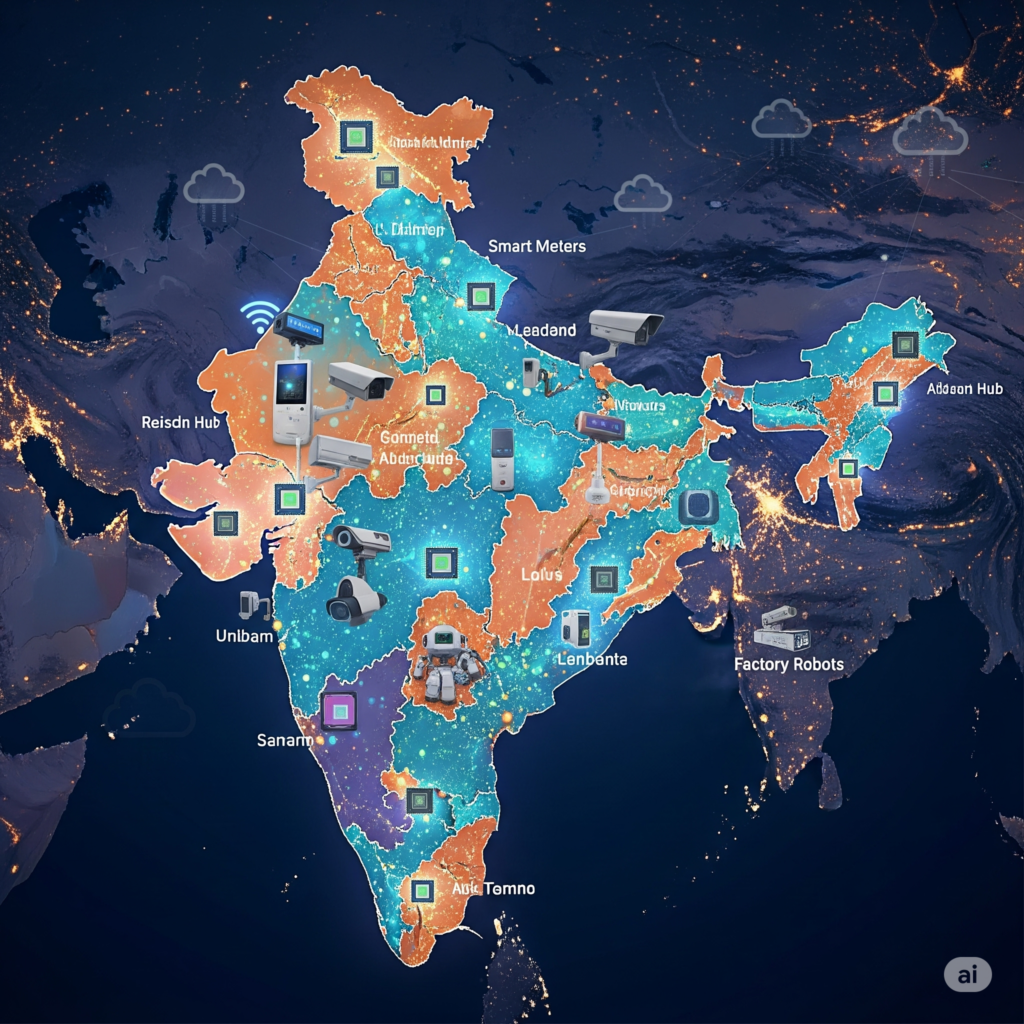India is making a strategic leap in technological autonomy by developing homegrown AI-capable chips that run advanced machine learning directly on local devices. This marks a crucial move away from imported cloud infrastructure and GPU dependency—paving the way for real-time, low-cost AI across the country’s power- and bandwidth-constrained environments.
Why Local AI Silicon Is India’s Next Big Bet

Key Benefits:
- Independence from global supply chains and expensive, cloud-centric AI.
- Real-time intelligence at the point of data generation—critical for remote regions or unreliable networks.
- Energy efficiency, vital given India’s dense population and infrastructure gaps.
- Security and privacy by minimizing data transfer to the cloud.
Startups Driving the Edge AI Revolution
BigEndian Semiconductors
- Focus: Fabless design of advanced AI SoCs for surveillance cameras and IoT.
- Milestone: Surveillance chips based on 28nm node, purpose-built for India’s vast camera and smart security market. Expected to roll out their first reference chip in early 2025.
- Vision: Expand into broader IoT, supporting domestic verticals and strategic autonomy in silicon .
Mindgrove
- Achievement: Developed one of India’s first commercial high-performance SoCs, the Secure IoT microcontroller.
- Edge Focus: Optimized for smart meters, biometrics, and industrial/consumer sensors—balancing strong computing at 30% lower cost than foreign competitors.
- Differentiator: Fast-track design and prototyping, leveraging the open-source SHAKTI processor as its base, with power, security, and connectivity tuning for India’s unique environment .
Netrasemi
- Product: AI-enabled microcontrollers and SoCs for embedded “edge” intelligence.
- Highlights: Deep-learning NPUs (neural processing units) with ultra-low power draw and minimal memory needs.
- Target Applications: Smart cameras, defense, surveillance, robotics, industry 4.0, drones, and smart infrastructure.
- Technical Edge: Chips like the A2000 (8 TOPS) and R1000 (1 TOPS) feature video analytics, compression, and real-time vision tasks for infrastructure where cloud access is intermittent or bandwidth is scarce.
Table: Homegrown Edge AI Players — Focus and Domains
| Company | Core Product(s) | Key Applications | Unique Strengths |
|---|---|---|---|
| BigEndian | Surveillance SoC, IoT MCU | Smart cameras, security, IoT | Domestic design, optimized for India |
| Mindgrove | Secure IoT SoC, MCUs | Power meters, biometrics, smart devices | 30% lower cost, rapid prototyping |
| Netrasemi | Edge AI SoC/MCU, NPU cores | Vision, surveillance, robotics, smart meters | Ultra-low power, on-device inference |
Real-World Impact & Use Cases
- Healthcare devices: Portable diagnostics and monitoring with real-time AI, even in rural clinics with spotty internet.
- Surveillance & Security: Smart cameras process and analyze video on-site, reducing bandwidth load and privacy concerns.
- Smart meters & utilities: Efficient, secure data processing for electricity, gas, and water management—crucial for India’s energy infrastructure.
- Connected appliances & automation: Reliable, context-aware devices that work even when offline, from smart locks to industrial controllers.
Why Edge AI Hardware Matters for India
- Affordable intelligence: These SoCs bring AI to millions of devices under local cost and infrastructure realities.
- Resilience: Devices can keep working even when disconnected from the cloud—a necessity in many Indian geographies.
- Data sovereignty: Sensitive data remains on-device, aligning with India’s emerging privacy frameworks and reducing exposure to global cyber risks.
Challenges and The Road Ahead
- Ecosystem Building: Scaling up from pilot chips to mass adoption across diverse sectors.
- Talent Development: Strengthening chip design and AI hardware engineering talent pools.
- Partnerships: Collaboration with Indian manufacturers, industry bodies, and government programs to drive deployment.
India’s push for indigenous AI silicon, led by startups like BigEndian, Mindgrove, and Netrasemi, represents a foundational shift. By optimizing for local needs—cost, connectivity, and environment—they are not only breaking technology dependence, but also unlocking nationwide access to real-time, relevant AI









+ There are no comments
Add yours